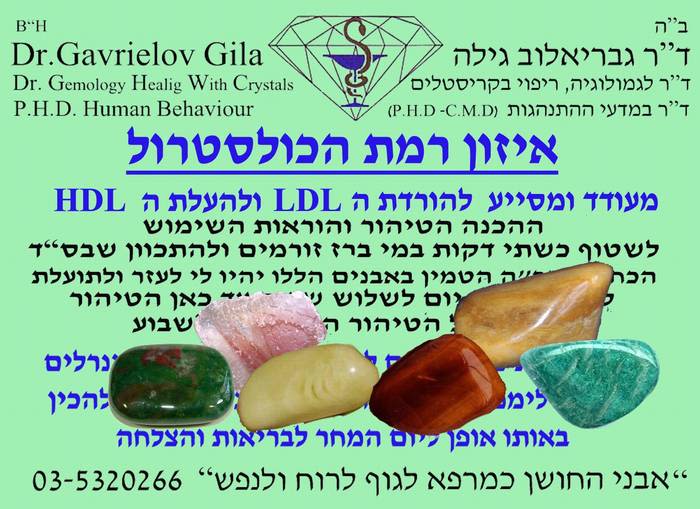
The Benefit of Kindness
There are two benefits that result from an act of kindness. The first is the assistance it brings to another person, the recipient of our...

There are two benefits that result from an act of kindness. The first is the assistance it brings to another person, the recipient of our kindness, and the second is the purity it brings to our own souls.
Sometimes we do a small good deed, one requiring only a little thought or effort, and yet it yields very great results. For example, a five-minute telephone call to suggest a shidduch can eventually lead to a marriage. When God rewards us for this deed, He looks at the end result, not at the effort we put into it. The Gemara (Sukkah 79b see Eitz Yosef on Ein Yaakov) derives this from the verse, “Sow for yourselves charity, and reap according to kindness” (Hosea 10:12). In other words, God rewards a charitable act according to the kindness that will eventually result from it. Although this seems to be more than we deserve, it is consistent with Divine justice, when viewed in a larger context. It may be the result of some previous merit we have, a good deed we once did, or even merely a desire to do good for which God wishes to reward us. Hence He gives us the opportunity to perform this simple good deed, which yields great profits. (See Eitz Yosef on Ein Yaakov, Succah 49b)
The second benefit of an act of kindness is the good it does for us, for an act of kindness purifies our souls and helps us to overcome our selfish inclinations. By acquiring the traits of kindness and generosity, we perfect our own souls and all the worlds that are dependent on us.
Hence, only God can truly assess the value of the mitzvot we perform, for only He knows how easy or difficult it was for us, and why we were granted the opportunity to do it. Only God knows how the mitzvah benefits each person involved, and how it affects the supernal worlds. (See Rambam, Mishnah Torah, Hilchot Teshuvah 3:2)
The Damage of Sin
Just as there are two sides to every act of kindness, so are there two sides to every harmful act. First of all, there is the pain or embarrassment we cause to another human being. This may awaken accusations against us in the supernal worlds, resulting in harsh decrees. Bringing pain to any living creature can have negative consequences. For example, the Arizal once spent a few days as a guest of a family, and in gratitude for their hospitality, he offered to bless them before he left. His host mentioned that although he had several children, his wife had been unable to conceive for many years. The Arizal knew the reason for this through ruach hakodesh, and he revealed it to his host. In the courtyard of the house, there had been a small ladder against a well, which allowed the chickens to climb up and drink water that had spilled there. One day, while cleaning the yard, the man’s wife had unintentionally removed the ladder and from that day on, the chickens suffered terribly from the heat. Their cries rose to heaven and as a result, it was decreed that the woman would become barren. The Arizal instructed the man to return the ladder to its place, and after he did so, his wife conceived again (Kav HaYashar 87)
If even an unintentional act that affected small animals can have such severe repercussions, how much more serious is a transgression against one’s fellow man! The Talmud tells the story of a Torah scholar who would spend the entire year away from his family, immersed in study. He would come home to his wife only once a year, on the eve of Yom Kippur. One year, however, he was so absorbed in his studies that he forgot to leave the study hall on time. His poor wife, who was anxiously waiting for him at home, concluded that he was not coming at all and began to cry. At that moment, the roof of the study hall collapsed and he was killed (Kesuvot 62b).
The second negative consequence of hurting others is that it engenders bad traits in us, for a human being is influenced by his actions (see Sefer HaChinuch 16). This is very serious, since it is only by correcting our bad traits – pride, depression, anger, desire, cruelty, jealousy – that we can become complete. Indeed, the process of rectifying our character traits is the main reason for which we were created. When we remove our negative qualities and acquire good ones, we uplift ourselves, our surroundings, and all the worlds that depend upon us. If, on the other hand, we hurt others, we damage ourselves and all the worlds to which we are connected.
With this idea, we can understand an episode in the Torah. Rashi (Shemot 7:19, “emor el Aharon,” and 8:12, “emor el Aharon.”) points out that the first three of the ten plagues – blood, frogs, and lice – were initiated by Aharon (Aaron), not Moshe (Moses). The reason is that when Moshe was an infant, he was saved by the Nile River, and later on by the dust of Egypt when he hid the body of the Egyptian that he killed in the sand. Hence, Moshe was ordered not to strike the river or the dust of Egypt with his staff, and not to turn them into blood, frogs, and lice.
Obviously, neither the river nor the ground would have been hurt by Moshe’s act. Neither of them had any feelings or any sense of injustice. But, as we know, every harmful act engenders negative character traits within the person who performs that act. Had Moshe inflicted damage on objects from which he had benefited so greatly, it would have caused a slight blemish to his own refined character. This is what our Sages mean when they say, “Don’t throw earth into the well from which you drank” (Bava Kama 92b).
A Sensitive Soul
On the subject of character refinement and compassion, I am reminded of a story about Reb Ephraimel from Peshadborz, the author of the book, Oneg Shabbos. He was an outstanding Torah scholar, a living Shulchan Aruch, from whose every act and word one could learn important lessons, and he was also an exceedingly holy and humble individual. I heard the following story from his wife.
Reb Ephraimel had a guest who came to stay at his home overnight. He personally saw to all the man’s needs and served him graciously. As evening approached, he went to prepare a bed for his guest. He opened the door of a small storage room where he kept a pile of extra mattresses, but instead of entering the room, he immediately closed the door and left. A few minutes later, he came back and opened the door a second time, only to retreat again. He repeated the same behavior a number of times, until finally he entered the room and came out carrying a mattress. Afterward, he explained to his family what had happened.
“There was a rooster sleeping on the mattress,” he said, “and I didn’t have the heart to wake him up. After all, he too is one of God’s creatures. So I waited until he woke up by himself and jumped off the mattress.”
This is an amazing story, for it shows that Reb Ephraimel’s deep sensitivity did not allow him to cause pain to any living creature.
(Excerpt from The Scent of Gan Eden, by Rabbi Yaakov Meir Shechter, Keren Ohr Publications. Used with author’s permission.)












Tell us what you think!
Thank you for your comment!
It will be published after approval by the Editor.